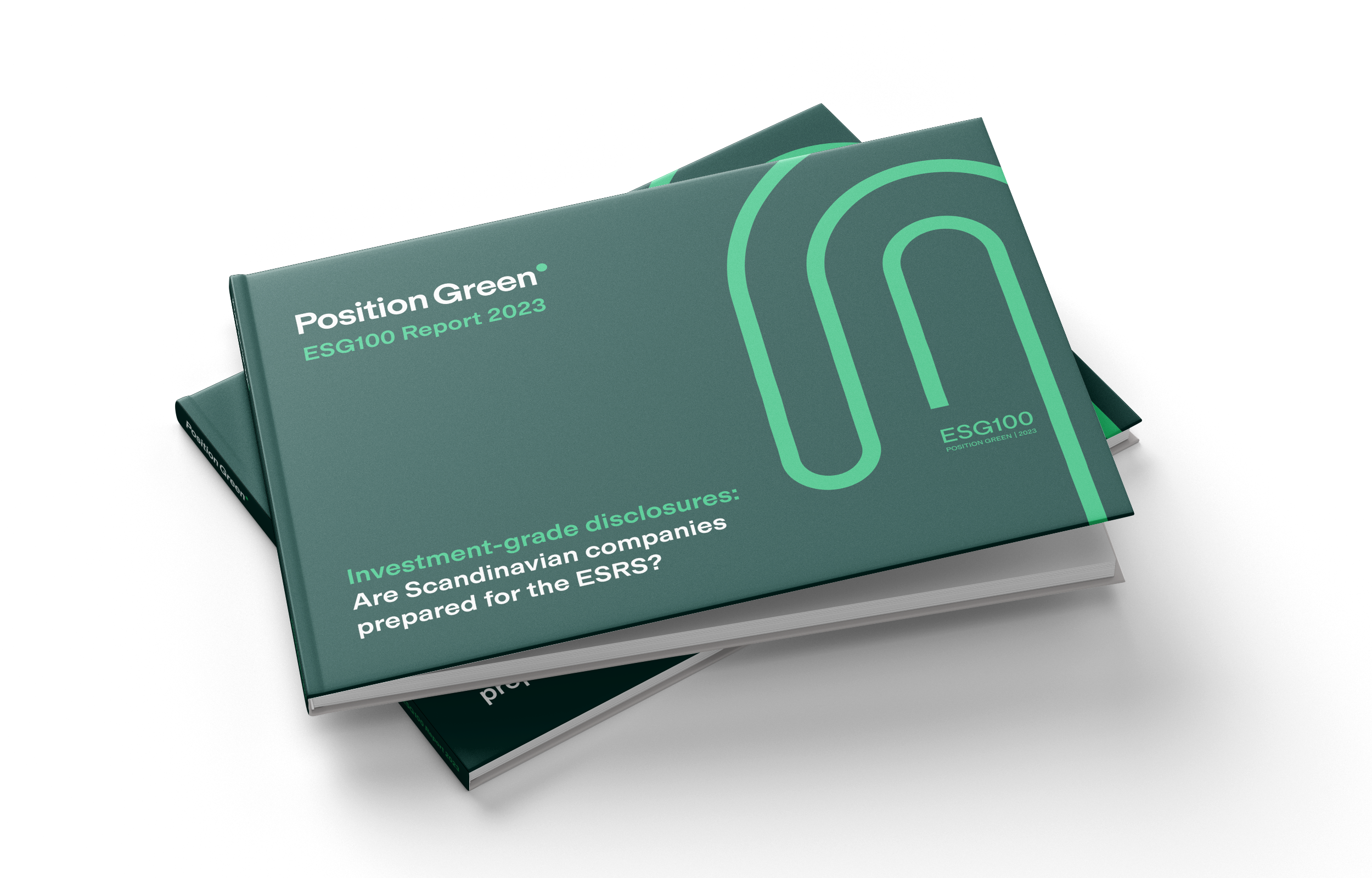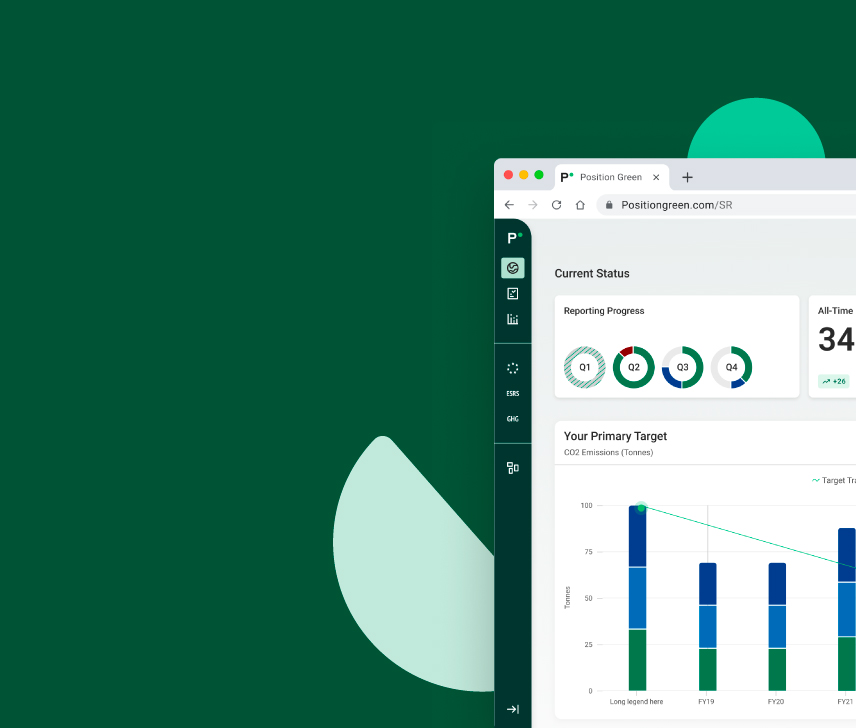ESG100
ESG100 is our annual review of the ESG reporting of the 400 largest listed companies in Scandinavia and Europe, covering their disclosure patterns and how well they’ve aligned to the European Sustainability Reporting Standards (ESRS).

Access the 2024 review
Register to access your copy for free
Environmental pledges are high, but investment is low
With environmental action being a clear corporate KPI and a fundamental part of CSRD, it’s interesting to see it backed by so few actual investments.
A small sample of the findings contained in the review

A majority of Net Zero pledges, but a minority of climate investments

“Green” revenue under-represented across Europe and Scandinavia

Scope 3 sees greater disclosure rates with the ESRS’s introduction

“As the ESRS introduces the most comprehensive ESG disclosure regulations to date, these insights are key for businesses, investors and policymakers to navigate the regulatory landscape and achieve real sustainability impact.”
Julia Staunig – Chief Strategy Officer & Managing Director Brussels, Position Green

2024 Launch Event
ESRS-ready or not?
Join us for the breakfast launch event in Oslo, where you’ll have the opportunity to network with executives and gain direct insights from our report. If you can’t make it in person, join our live-webcast from anywhere. Breakfast starts at 8, followed by live webcast from 8:30 to 9:45.
Get the 2023 ESG100 review
The 2023 analysis assesses how well prepared the 300 participating companies are for the introduction of the European Sustainability Reporting Standards (ESRS). Register to get last year’s review.



